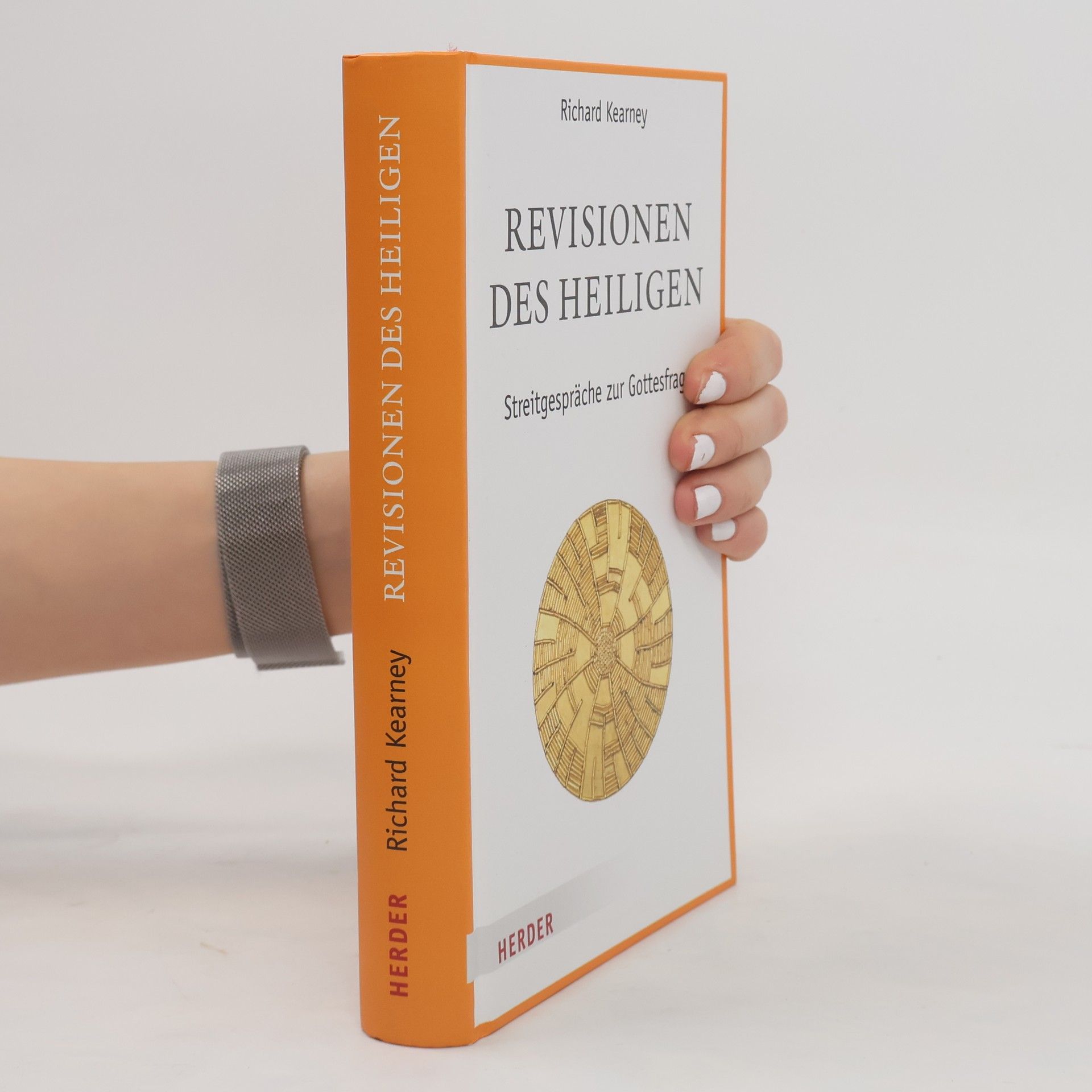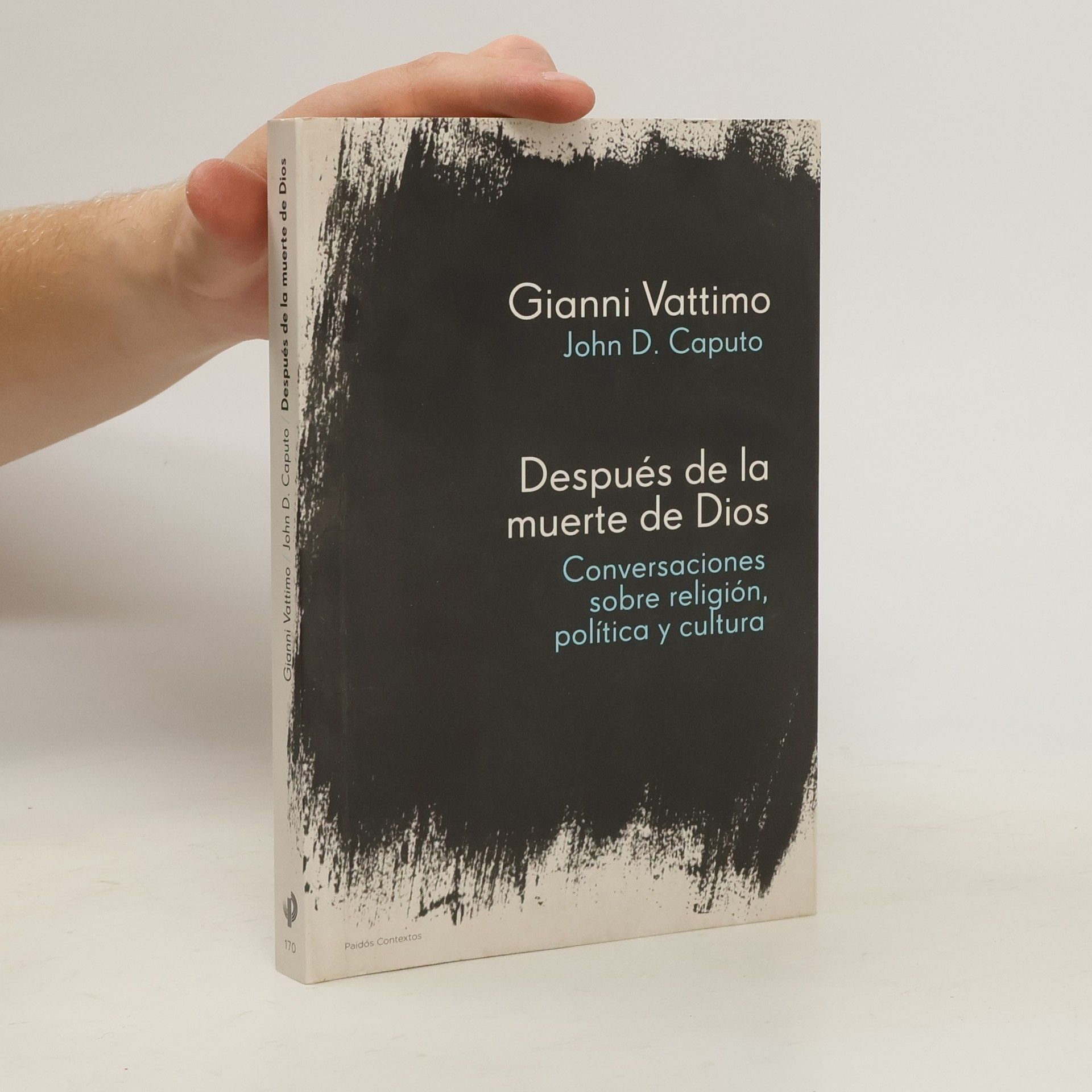Exploring the nature of belief, acclaimed philosopher John D. Caputo engages a diverse audience—including believers, skeptics, and those indifferent to religion. He invites readers on a journey to uncover personal convictions and the essence of belief itself, regardless of religious affiliation. This lively and accessible work challenges traditional notions, aiming to resonate with anyone searching for meaning and understanding in their beliefs.
John D. Caputo Book order (chronological)
John D. Caputo is an American philosopher whose work is central to postmodern Christianity and the philosophy of religion, founding the theological movement known as weak theology. His extensive scholarship delves into hermeneutics, phenomenology, and deconstruction, exploring profound questions of faith and interpretation. Caputo's distinctive approach offers readers a fresh perspective on the intricate relationship between religion, philosophy, and contemporary thought. His writing challenges conventional understandings, providing a unique intellectual journey.






In Specters of God, John D. Caputo returns to the original impulse of his work, the "mystical element" in things, here under the name of an "anxious apophatics," as distinct from an "edifying apophatics" anchored in unity with God. In dialogue with Schelling, a new turn for him and the lynchpin of this argument, Caputo addresses the nocturnal powers in being, the specters that haunt our being and bring us up short. The result is an erudite and insightful analysis--in his usual lively and masterful style--of several key "spectral" figures from medieval angelology and Eckhart's Gottheit, through Luther's deus absconditus and Schelling's "Satanology," to the spectralization and virtualization of the world in the "posthuman" age. Arguing that the name of God is not the master name of a super-being who is going to save us but a placeholder for sources deep in our apophatic imaginary, he asks, Has "God" become a (holy) ghost of the past? A passing spectral effect of the ancient harmonies of the spheres? Does radical thinking culminate in a cosmopoetics beyond theism and its theology, in a doxology to the transient glory of the world, whatever it was in the beginning, however eerie its end, world without why?
Die Torheit Gottes
Eine radikale Theologie des Unbedingten
John Caputo entdeckt Gott nicht als »höchstes Wesen«, sondern als ein schwaches Vielleicht, als das Unbedingte kommender Gerechtigkeit, als ein Ereignis, das uns bedrängt, für andere öffnet und verändert. In diesem Buch erschließt er eine theologische Denkweise, die im deutschsprachigen Raum noch wenig bekannt ist: die radikale Theologie, die Gott nicht »in der Höhe«, sondern in den Tiefen, an den Wurzeln der menschlichen Existenz sucht und dabei in einen fruchtbaren Dialog mit der postmodernen Gegenwartskultur sowie mit atheistischen und agnostischen Denkansätzen tritt. Ein kompaktes, gut lesbares Buch mit teils humorvoller Schärfe, philosophischer Klarheit und intellektueller Leidenschaft!
In Search of Radical Theology
- 256 pages
- 9 hours of reading
"After a detailed analysis of just what radical theology means, as a concept and in its relationship to traditional theology, this volume offers a selection of essays written for both academic and wider audiences which show aim at catching radical theology in action, in the church and in the culture at large"--
Richard Kearney hat zentrale religiose Fragen zum Glauben und zu Glaubenszweifeln, zu Theismus, Atheismus, Agnostizismus und Humanismus mit bedeutenden Gesprachspartner diskutiert. Der Band bietet wichtige Impulse aus den Diskussionen etwa mit Catherine Keller, Charles Taylor, Julia Kristeva, Gianni Vattimo, Jean-Luc Marion, John Caputo und David Tracy.
Hermeneutics
- 336 pages
- 12 hours of reading
Is anything ever not an interpretation? Does interpretation go all the way down? Is there such a thing as a pure fact that is interpretation-free? If not, how are we supposed to know what to think and do? These tantalizing questions are tackled by renowned American thinker John D Caputo in this wide-reaching exploration of what the traditional term 'hermeneutics' can mean in a postmodern, twenty-first century world. As a contemporary of Derrida's and longstanding champion of rethinking the disciplines of theology and philosophy, for decades Caputo has been forming alliances across disciplines and drawing in readers with his compelling approach to what he calls "radical hermeneutics." In this new introduction, drawing upon a range of thinkers from Heidegger to the Parisian "1968ers" and beyond, he raises a series of probing questions about the challenges of life in the postmodern and maybe soon to be 'post-human' world.'
Hoping Against Hope
- 214 pages
- 8 hours of reading
John D. Caputo has a long career as one of the preeminent postmodern philosophers in America. Caputo now reflects on his spiritual journey from a Catholic altar boy in 1950s Philadelphia to a philosopher after the death of God. Part spiritual autobiography, part homily on what he calls the nihilism of grace, Hoping against Hope calls believers and nonbelievers alike to participate in the praxis of the kingdom of God, which Caputo says we must pursue without why.
Truth
- 272 pages
- 10 hours of reading
Explores the many notions of 'truth', and what it really means Riding to work in the morning has become commonplace. The author argues that our transportation technologies are not merely transient phenomena but the vehicle for an important metaphor about post modernism, or even constitutive of post modernism.
Después de la muerte de Dios
Conversaciones sobre religión, política y cultura
- 276 pages
- 10 hours of reading
How to Read Kierkegaard
- 128 pages
- 5 hours of reading
Soren Kierkegaard is one of the prophets of the contemporary age, a man whose acute observations on modern European life might have been written yesterday, whose work anticipated fundamental developments in psychoanalysis, philosophy, theology, and the critique of mass culture by more than a century.John D. Caputo offers a compelling account of Kierkegaard as a thinker of particular relevance in our postmodern times, who set off a revolution that counts Martin Heidegger and Jacques Derrida among its heirs. His conceptions of truth as a self-transforming "deed" and his haunting account of the "single individual" seem to have been written especially with us in mind.Extracts include Kierkegaard's classic reading of the story of Abraham and Isaac, the revolutionary theory that truth is subjectivity, and his groundbreaking analysis of modern bourgeois life.



